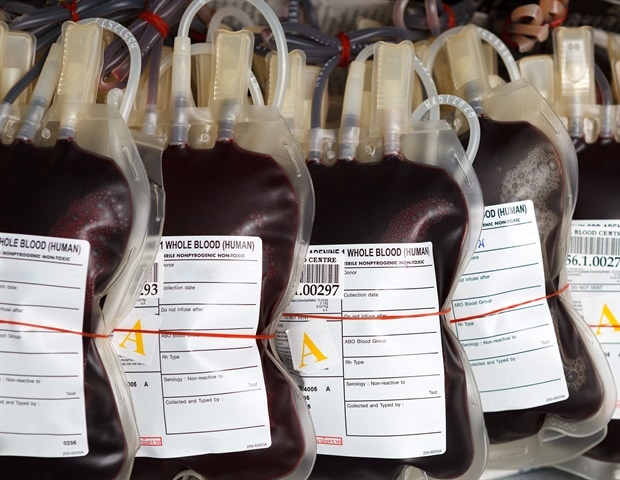In a recent perspective published in Science, researchers explored the correlation between autoimmunity and obesity.

Background
Studies have suggested a significant relationship between obesity or being overweight and the likelihood of developing autoimmune disorders. This association can be explained from an immunological perspective, wherein T lymphocyte overstimulation is influenced by energy- and nutrient-sensing mechanisms. The adipose tissue is an organ that exhibits immunological activity and can impact systemic immune responses by generating adipocytokines.
Conversely, immune cells can influence adipocyte metabolism and homeostasis by producing anti- and pro-inflammatory cytokines. This suggested that immunometabolism may be impacted by metabolic overload resulting from obesity, thereby potentially modifying the vulnerability to autoimmune disorders.
Type 1 diabetes susceptibility and obesity
Obesity has been identified as a risk factor for autoimmune disorders, including type 1 diabetes (T1D) as well as multiple sclerosis (MS). Studies conducted on young obese individuals have revealed a heightened likelihood of developing MS during young adulthood and adolescence with a 1.6- to 1.9-fold elevation in risk. However, this correlation with obesity was not observed at the onset of MS.
Additionally, this correlation was confirmed in individuals carrying the human leukocyte antigen (HLA)-DRB1*15:01 susceptibility allele, which is responsible for presenting myelin self-antigens against autoreactive T cells. Likewise, an elevated body mass index (BMI) at the time of birth is linked to an increased vulnerability to T1D among children. The data suggest a positive correlation between birth weight and the prevalence of T1D, with a nearly linear relationship.
Body adiposity and the mechanistic target of rapamycin (mTOR)
Elevated levels of body adiposity have been observed to stimulate the hyperactivity of intracellular energy- and nutrient-sensing pathways, such as mTOR, leading to metabolic overload within peripheral tissues. This includes immune cells that are responsible for both effector as well as regulatory immune responses. In MS cases, the patients who are obese and have not received prior treatment, it has been observed that the adipocytokine leptin, in conjunction with increased levels of circulating nutrients, can enhance inflammatory immune responses.
The overexpression of nutrients and leptin leads to constant mTOR activation in T cells, resulting in the irregular signaling of T cell receptors (TCRs). Excessive mTOR activation within T cells imitates a potent, above-normal T cell receptor (TCR) stimulation that does not allow forkhead-box P3 (FOXP3) gene transcription. The expression of this gene is crucial for the initiation and preservation of anti-inflammatory CD4+CD25+FOXP3+ regulatory T cells (Tregs). Obesity has been found to hinder anti-inflammatory thymic Tregs transcription and their peripheral differentiation from cell precursors of CD4+CD25− conventional T (Tconv) due to an overproduction of leptin.
Normal BMI and mTOR activity
The oscillations in mTOR activity are determined by physiological nutrients and fluctuations in leptin resulting from daily fasting and feeding cycles. However, these oscillations are lost in cases of obesity due to excessive food intake. Hence, it can be inferred that in individuals who possess normal BMI and exhibit physiological feeding and fasting cycles, the sustenance and continuation of self-tolerance are correlated with fluctuations in mTOR activity within Tregs. Adequate Treg expansion and functionality seem imperative for suppressing pathogenic TH1 and TH17 cells, thereby preventing autoimmunity.
Nutrition and metabolism-associated growth factors, namely insulin, leptin, and insulin-like growth factor 1 (IGF-1), are responsible for activating mTOR signaling in immune cells. This activation has a significant impact on systemic as well as intracellular immunometabolism, thereby influencing autoimmunity and inflammation. Adipose tissue has been found to secrete various inflammatory cytokines, including tumor necrosis factor-a (TNF-a), interleukin-1 (IL-1), IL-6, IL-17, interferon-g (IFN-g), and leptin. This secretion has been linked to an increased susceptibility to autoimmunity and peripheral tissue damage.
The relationship between adipose tissue and the immune system
There is a reciprocal communication and interaction between the immune system and adipose tissue, both in structure and function. Both primary and secondary lymphoid organs are typically enveloped by adipose tissue. The proximity between adipose tissue and T cells, B cells, Tregs, dendritic cells, and macrophages facilitates their migration to the adipose tissue. Furthermore, adipocytes can exhibit immune-like behaviors.
The alterations in the quantity and efficacy of Treg cells that are evident in cases of obesity may have an impact on the vulnerability to infections and malignancies. The infection caused by the severe acute respiratory syndrome coronavirus 2 (SARS-CoV-2) has been found to be linked with the generation of autoantibodies and exhibits greater severity in individuals who are obese. Furthermore, individuals with a higher body mass index exhibit superior responses to cancer immunotherapy compared to those with a lower BMI.
Conclusion
The perspective summarizes that modulation of immune function could be influenced by molecules that interact with leptin derived from adipocytes, and this modulation can vary depending on the metabolic status. The areas that require further investigation involve the molecular analysis of the impact of individual nutrients on immunological self-tolerance, as well as the specific time frame during which Caloric Restriction (CR) can serve as a viable therapeutic approach for autoimmunity associated with obesity.
















